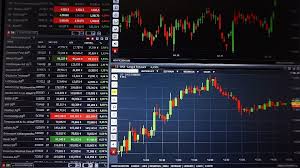
Welcome to the World of Forex Trading
Forex trading, or foreign exchange trading, is one of the largest and most liquid markets in the world. With a daily trading volume exceeding $6 trillion, it offers vast opportunities for traders. Whether you are an experienced trader or just starting your journey, having the right knowledge and tools is crucial for success. For those interested, you can explore valuable resources at forex trading site kuwait-tradingplatform.com. This guide will provide you with actionable insights and strategies to navigate the Forex market effectively.
Understanding the Basics of Forex Trading
At its core, Forex trading involves the exchange of one currency for another. Currencies are traded in pairs, such as EUR/USD or USD/JPY, and their values fluctuate based on various factors. These fluctuations present opportunities for traders to buy low and sell high, making profits along the way. Key concepts to understand in Forex include:
- Currency Pairs: Currencies are quoted in pairs, indicating their relative value. The first currency in the pair is the base currency, while the second is the quote currency.
- Pips: A pip is the smallest price movement in a currency pair. It is crucial for measuring profit or loss in trading.
- Leverage: Leverage allows traders to control larger positions with a smaller amount of capital. While it can amplify profits, it can also increase losses.
- Spread: The spread is the difference between the bid and ask price of a currency pair. It is a cost incurred during trading.
Choosing a Forex Broker
Selecting the right Forex broker is one of the most important steps in your trading journey. A good broker should offer competitive spreads, a user-friendly trading platform, and excellent customer support. Here are some factors to consider when choosing a broker:
- Regulation: Ensure the broker is regulated by a reputable authority to safeguard your investments.
- Trading Platform: Look for a broker that provides a robust trading platform with advanced tools and features.
- Customer Service: Quality customer service is essential for resolving issues and addressing inquiries promptly.
- Educational Resources: A good broker will provide educational resources to help you improve your trading skills.

Developing a Trading Strategy
A well-thought-out trading strategy is essential for success in Forex trading. Your strategy should outline your trading goals, risk tolerance, and preferred trading style. Common trading styles include:
- Day Trading: Involves making multiple trades within a single day and closing all positions by the end of the day.
- Swing Trading: This approach focuses on capturing price movements over several days or weeks.
- Scalping: Involves making numerous trades with the goal of capturing small price movements.
Regardless of the style you choose, your strategy should incorporate sound risk management techniques, including setting stop-loss and take-profit orders.
Technical Analysis in Forex Trading
Technical analysis involves analyzing price charts and using indicators to forecast future price movements. Here are some popular tools and indicators you can use:
- Moving Averages: This tool helps smooth out price data to identify trends and potential reversal points.
- Relative Strength Index (RSI): An oscillator that measures the speed and change of price movements, helping identify overbought or oversold conditions.
- Fibonacci Retracement Levels: These levels provide potential support and resistance levels based on the Fibonacci sequence.
Fundamental Analysis in Forex Trading
Unlike technical analysis, fundamental analysis focuses on economic factors, news events, and geopolitical developments that influence currency values. Here are some key indicators to keep an eye on:

- Interest Rates: Central banks set interest rates, which can significantly impact currency values. Higher interest rates generally strengthen a currency.
- Economic Data Releases: Reports such as GDP, employment figures, and inflation data provide insights into a country’s economic health.
- Geopolitical Events: Events like elections or crises can create volatility in currency markets and should be monitored closely.
Risk Management and Psychology in Forex Trading
Effective risk management is vital for long-term success in Forex trading. No trader wins 100% of the time; therefore, managing losses is equally as important as maximizing profits. Consider the following risk management strategies:
- Risk-Reward Ratio: Aim for a favorable risk-reward ratio on your trades, generally targeting at least 1:2.
- Diversification: Avoid putting all your capital into a single trade; diversify your investments across different currency pairs.
- Position Sizing: Determine the size of your trades based on your overall account balance and risk tolerance.
The Importance of Continuous Learning
The Forex market is dynamic and ever-evolving. Continuous learning is essential to stay informed about market changes, new strategies, and tools. Consider incorporating the following into your learning routine:
- Online Courses: Many platforms offer courses that dive deep into various aspects of Forex trading.
- Trading Simulators: Use demo accounts to practice trading without risking real money.
- Webinars and Forums: Participate in webinars and discussion forums to learn from experienced traders and share insights.
Conclusion
Forex trading can be an exciting and profitable venture if approached with the right mindset, knowledge, and tools. By understanding the basics, choosing the right broker, and developing a solid trading strategy, you will be well on your way to mastering the Forex market. Remember, success in trading doesn’t happen overnight; it requires dedication, continuous learning, and disciplined execution of your trading strategy. Start your Forex trading journey today!
